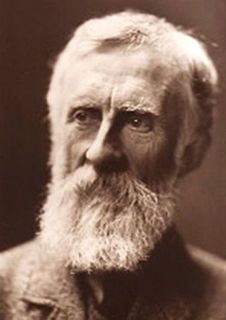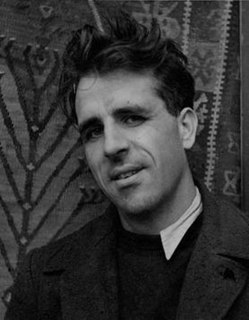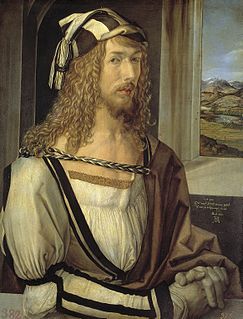A Quote by Mary Wollstonecraft Shelley
But he found that a traveller's life is one that includes much pain amidst its enjoyments. His feelings are for ever on the stretch; and when he begins to sink into repose, he finds himself obliged to quit that on which he rests in pleasure for something new, which again engages his attention, and which also he forsakes for other novelties.
Related Quotes
The child knows only that he engages in play because it is enjoyable. He isn't aware of his need to play--a need which has its source in the pressure of unsolved problems. Nor does he know that his pleasure in playing comes from a deep sense of well-being that is the direct result of feeling in control of things, in contrast to the rest of his life, which is managed by his parents or other adults.
what he sought was always something lying ahead, and even if it was a matter of the past it was a past that changed gradually as he advanced on his journey, because the traveller's past changes according to the route he has followed: not the immediate past, that is, to which each day that goes by adds a day, but the more remote past. Arriving at each new city, the traveller finds again a past of his that he did not know he had: the foreignness of what you no longer are or no longer possess lies in wait for you in foreign, unpossessed places.
A man's knowledge may be said to be mature, in other words, when it has reached the most complete state of perfection to which he, as an individual, is capable of bringing it, when an exact correspondence is established between the whole of his abstract ideas and the things he has actually perceived for himself. His will mean that each of his abstract ideas rests, directly or indirectly, upon a basis of observation, which alone endows it with any real value; and also that he is able to place every observation he makes under the right abstract idea which belongs to it.
The true value of the Christian religion rests, not upon speculative views of the Creator, which must necessarily be different in each individual, according to the extent of the knowledge of the finite being, who employs his own feeble powers in contemplating the infinite: but it rests upon those doctrines of kindness and benevolence which that religion claims and enforces, not merely in favour of man himself but of every creature susceptible of pain or of happiness.
The photographer sees the world as a child sees the bits of glass in a kaleidoscope. If he has a camera with which he can secure these ever-changing combinations, he is then able to look on them again and again, and he has the further pleasure of pleasing others with the sight of things which he, with perhaps unusual opportunities, was able to see, which his friends would otherwise not ever be able to.
Strange is the vigour in a brave man's soul. The strength of his spirit and his irresistible power, the greatness of his heart and the height of his condition, his mighty confidence and contempt of danger, his true security and repose in himself, his liberty to dare and do what he pleaseth, his alacrity in the midst of fears, his invincible temper, are advantages which make him master of fortune.
The only distinction between freedom and slavery consists in this: In the former state a man is governed by the laws to which he has given his consent, either in person or by his representative; in the latter, he is governed by the will of another. In the one case, his life and property are his own; in the other, they depend upon the pleasure of his master. It is easy to discern which of these two states is preferable.
When he at least reached the door the handle had cease to vibrate. Lowering himself suddenly to his knees he placed his head and the vagaries of his left eye (which was for ever trying to dash up and down the vertical surface of the door), he was able by dint of concentration to observe, within three inches of his keyholed eye, an eye which was not his, being not only of a different colour to his own iron marble, but being, which is more convincing, on the other side of the door.
It has always been my belief that the true artist, like the true scientist, is a researcher using materials and techniques to dig into the truth and meaning of the world in which he himself lives; and what he creates, or better perhaps, brings back, are the objective results of his explorations. The measure of his talent--of his genius, if you will--is the richness he finds in such a life's voyage of discovery and the effectiveness with which he is able to embody it through his chosen medium.
Any piece of knowledge which the pupil has himself acquired- any problem which he has himself solved, becomes, by virtue of the conquest, much more thoroughly his than it could else be. The preliminary activity of mind which his success implies, the concentration of thought necessary to it, and the excitement consequent on his triumph, conspire to register the facts in his memory in a way that no mere information heard from a teacher, or read in a schoolbook, can be registered.
God is not only to be known in His blessed and incomprehensible being, for this is something which is reserved for His saints in the age to come. He is also known from the grandeur and beauty of His creatures, from His providence which governs the world day by day, from His righteousness and from wonders which He shows to His saints in each generation.
Reason cannot desire for man any condition other than that in which not only every individual enjoys the most absolute, unbounded freedom to develop himself out of himself, in true individuality, but in which physical nature, as well, need receive no other shaping by human hands than that which is given to her voluntarily by each individual, according to the measure of his wants and his inclinations, restricted only by the limits of his energy and his rights.
A man only begins to be a man when he ceases to whine and revile, and commences to search for the hidden justice which regulates his life. And he adapts his mind to that regulating factor, he ceases to accuse others as the cause of his condition, and builds himself up in strong and noble thoughts; ceases to kick against circumstances, but begins to use them as aids to his more rapid progress, and as a means of the hidden powers and possibilities within himself.
A tough manager will have realistic quotas for his employees that he keeps to himself and aggressively stretch quotas, anywhere from ten percent higher to a lot more, which he imposes on his staff. If his people miss the stretch numbers but exceed the realistic goals, he's happy. If he's a superb manager, he knows how far they can stretch without breaking.
Pathology has made us acquainted with a great number of states in which the boundary lines between the ego and the external world become uncertain or in which they are actually drawn incorrectly. There are cases in which parts of a person's own body, even portions of his own mental life - his perceptions, thoughts and feelings -, appear alien to him and as not belonging to his ego; there are other cases in which he ascribes to the external world things that clearly originate in his own ego and that ought to be acknowledged by it.







































